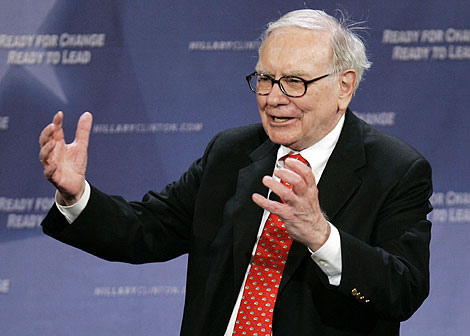
Over the years, much has been made of the advice of iconic investor and billionaire Warren Buffett, including his penchant for promoting the idea that most investors should use index funds.
When one mentions Buffett’s promotion of low-cost investing, usually the pushback from active investors is immediate.
Certainly, they say, he can’t mean that nobody should be picking stocks! After all, he did very well at it over the years!
It’s a fair point, but utterly mistaken. Yes, Buffett is a stock picker. But he’s a rare bird indeed, among a handful of very keen minds who have managed to win at an essentially unwinnable game.
Would you get into the pool with Michael Phelps? Tackle the back nine with Tiger Woods? Play pickup ball with LeBron James? Probably not.
Nor should you attempt to do the kinds of things that Buffett does on behalf of his investors in Berkshire Hathaway. The risks are great and rewards few and far between, as he takes great pains to spell out.
Risk must be considered, not just return, Buffett argues. Here are five instances in the past where he makes the case for reducing risk by owning the stock market via index funds.
Most of these come from his past letters to shareholders, noted by year, except for one which happened to be in conversation with Vanguard Founder John Bogle, a man Buffett in 2016 called a “hero” to investors for his tireless work promoting low-cost investing.
1. High fees create low returns
“When trillions of dollars are managed by Wall Streeters charging high fees, it will usually be the managers who reap outsized profits, not the clients. Both large and small investors should stick with low-cost index funds.” (2016)
2. The goal of the amateur investor
“The 21st century will witness further gains, almost certain to be substantial. The goal of the non-professional should not be to pick winners — neither he nor his ‘helpers’ can do that — but should rather be to own a cross-section of businesses that in aggregate are bound to do well. A low-cost S&P 500 index fund will achieve this goal.” (2013)
3. How dumb money gets smart
“By periodically investing in an index fund, for example, the know-nothing investor can actually outperform most investment professionals. Paradoxically, when ‘dumb’ money acknowledges its limitations, it ceases to be dumb.” (1993)
4. How smart money gets dumb
“Huge institutional investors, viewed as a group, have long underperformed the unsophisticated index-fund investor who simply sits tight for decades. A major reason has been fees: Many institutions pay substantial sums to consultants who, in turn, recommend high-fee managers. And that is a fool’s game.” (2014)
5. Ben Graham on indexing
“A low-cost fund is the most sensible equity investment for the great majority of investors. My mentor, Ben Graham, took this position many years ago, and everything I have seen since convinces me of its truth.” (To John Bogle, in The Little Book of Common Sense Investing)
The tide is turning in the investment world. Trillions of dollars is managed via index funds at extremely low cost and that figure is rising every month.
Bonus round
You might wonder, perhaps, why not all of it? The simple answer, according to Buffett, is ego, as he explained in his 2016 letter to shareholders.
“Over the years, I’ve often been asked for investment advice, and in the process of answering I’ve learned a good deal about human behavior. My regular recommendation has been a low-cost S&P 500 index fund,” Buffett wrote.
“To their credit, my friends who possess only modest means have usually followed my suggestion. I believe, however, that none of the mega-rich individuals, institutions or pension funds has followed that same advice when I’ve given it to them.”
Instead, he went on, those rich investors give their money to a Wall Street investment manager, who then proceeds to attack that bundle of money with fees while delivering, typically, far below market returns.
Essentially, these rich folks got free advice from one of the richest men in the world and, without a second thought, did the opposite. Human behavior indeed.





